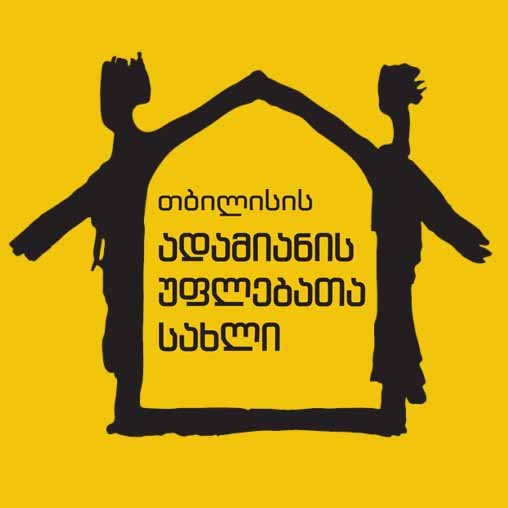News
Three Years since the Events of June 20-21, 2019: Statement by HRC
20.06.2022
Font size
Today, on June 20, three years have passed since the anti-occupation rally held on Rustaveli Avenue in front of the parliament building.
On June 20-21, 2019, the authorities dispersed thousands of civilians, gathered in front of the building of the parliament, using disproportionate force. The participants of the rally were protesting against the occupation of Georgia by Russia and against the fact that Sergey Gavrilov, MP of Russian Duma took the seat of the Chairperson of the Parliament in the frame of Interparliamentary Assembly on Orthodoxy. To disperse the protesters, the police used special means, rubber bullets, tear gas, and water cannons without any warning. Rubber bullets were used intensively against peaceful citizens present at the rally, who were not taking part in the violent acts and were not posing any threats to anyone around. As a result of using the rubber bullets in a manner non-compliant with the law, tens of people sustained grave bodily harm.
There was an unprecedented number of injured journalists at the protest demonstration of June 20-21 due to the use of excessive force and special means in a disproportionate manner by the law enforcement officials. According to the Georgian Charter of Journalistic Ethics, when dispersing the protest on June 20, 39 representatives of media carrying out their professional duties at the rally were physically injured.
HRC defends the interests of four citizens affected on June 20-21 in the European Court of Human Rights:
The case Tsaava-Kmuzov v. Georgia concerns the violations of Article 3 (Prohibition of torture, inhuman and degrading treatment), Article 10 (Freedom of expression), and Article 13 (Right to an effective remedy) of the European Convention of Human Rights against the journalists, Merab Tsaava and Beslan Kmuzov.
The case Svanadze v. Georgia concerns violations of Article 10 (Freedom of expression) and Article 13 (Right to an effective remedy) of the European Convention of Human Rights against journalist, blogger and civic activist Zaza Svanadze.
The Case V.B. v. Georgia concerns violations of Article 3 (Prohibition of torture, inhuman and degrading treatment), Article 10 (Freedom of expression), Article 11 (Freedom of assembly and association), and Article 13 (Right to an effective remedy) of the European Convention of Human Rights against civic activist V.B.
In all four cases indicated above, the investigation carried out by the national authorities has been ineffective. The serious flaw of the investigation is the fact that the victims (who hold official victim status) have not been given access to the case files concerning the responsibility of high government officials for allowing the use of special means in a disproportional manner against the participants of the rally.
On June 20-21, that time Minister of Interior, Giorgi Gakharia, his deputies, and that time director of the Special Tasks Department of MoI were the persons in charge of the protection and restoration of the public order in front of the Parliament premises. They were present at the site and were in charge of the dispersal operation. They were liable ex officio to adequately react to the facts of illegal use of special means.
To what extent have the high government officials carried out their official duties, what actions have they undertaken for these purposes, and what kind of investigative actions were carried out by the investigative bodies to clear the issue - these are the questions answers to which are not available for the injured persons. No adequate actions were taken by the investigative bodies to identify the low-rank officers who were using rubber bullets unlawfully against the peaceful protesters of the rally either. Up to the date, only one person is held liable for the fact of using rubber bullets unlawfully.
The right to peaceful assembly and demonstration is one of the core civil rights, which is vital for the functioning of a democratic society. Making public points on acute social and political issues through a peaceful assembly is critically important for generating healthy public discussions and democratic changes. June 20-21 events show clearly that the state authorities do not adequately acknowledge the importance of this fundamental right for a democratic society.
Human Rights Center
On June 20-21, 2019, the authorities dispersed thousands of civilians, gathered in front of the building of the parliament, using disproportionate force. The participants of the rally were protesting against the occupation of Georgia by Russia and against the fact that Sergey Gavrilov, MP of Russian Duma took the seat of the Chairperson of the Parliament in the frame of Interparliamentary Assembly on Orthodoxy. To disperse the protesters, the police used special means, rubber bullets, tear gas, and water cannons without any warning. Rubber bullets were used intensively against peaceful citizens present at the rally, who were not taking part in the violent acts and were not posing any threats to anyone around. As a result of using the rubber bullets in a manner non-compliant with the law, tens of people sustained grave bodily harm.
There was an unprecedented number of injured journalists at the protest demonstration of June 20-21 due to the use of excessive force and special means in a disproportionate manner by the law enforcement officials. According to the Georgian Charter of Journalistic Ethics, when dispersing the protest on June 20, 39 representatives of media carrying out their professional duties at the rally were physically injured.
HRC defends the interests of four citizens affected on June 20-21 in the European Court of Human Rights:
The case Tsaava-Kmuzov v. Georgia concerns the violations of Article 3 (Prohibition of torture, inhuman and degrading treatment), Article 10 (Freedom of expression), and Article 13 (Right to an effective remedy) of the European Convention of Human Rights against the journalists, Merab Tsaava and Beslan Kmuzov.
The case Svanadze v. Georgia concerns violations of Article 10 (Freedom of expression) and Article 13 (Right to an effective remedy) of the European Convention of Human Rights against journalist, blogger and civic activist Zaza Svanadze.
The Case V.B. v. Georgia concerns violations of Article 3 (Prohibition of torture, inhuman and degrading treatment), Article 10 (Freedom of expression), Article 11 (Freedom of assembly and association), and Article 13 (Right to an effective remedy) of the European Convention of Human Rights against civic activist V.B.
In all four cases indicated above, the investigation carried out by the national authorities has been ineffective. The serious flaw of the investigation is the fact that the victims (who hold official victim status) have not been given access to the case files concerning the responsibility of high government officials for allowing the use of special means in a disproportional manner against the participants of the rally.
On June 20-21, that time Minister of Interior, Giorgi Gakharia, his deputies, and that time director of the Special Tasks Department of MoI were the persons in charge of the protection and restoration of the public order in front of the Parliament premises. They were present at the site and were in charge of the dispersal operation. They were liable ex officio to adequately react to the facts of illegal use of special means.
To what extent have the high government officials carried out their official duties, what actions have they undertaken for these purposes, and what kind of investigative actions were carried out by the investigative bodies to clear the issue - these are the questions answers to which are not available for the injured persons. No adequate actions were taken by the investigative bodies to identify the low-rank officers who were using rubber bullets unlawfully against the peaceful protesters of the rally either. Up to the date, only one person is held liable for the fact of using rubber bullets unlawfully.
The right to peaceful assembly and demonstration is one of the core civil rights, which is vital for the functioning of a democratic society. Making public points on acute social and political issues through a peaceful assembly is critically important for generating healthy public discussions and democratic changes. June 20-21 events show clearly that the state authorities do not adequately acknowledge the importance of this fundamental right for a democratic society.
Human Rights Center
News
17.04.2024




